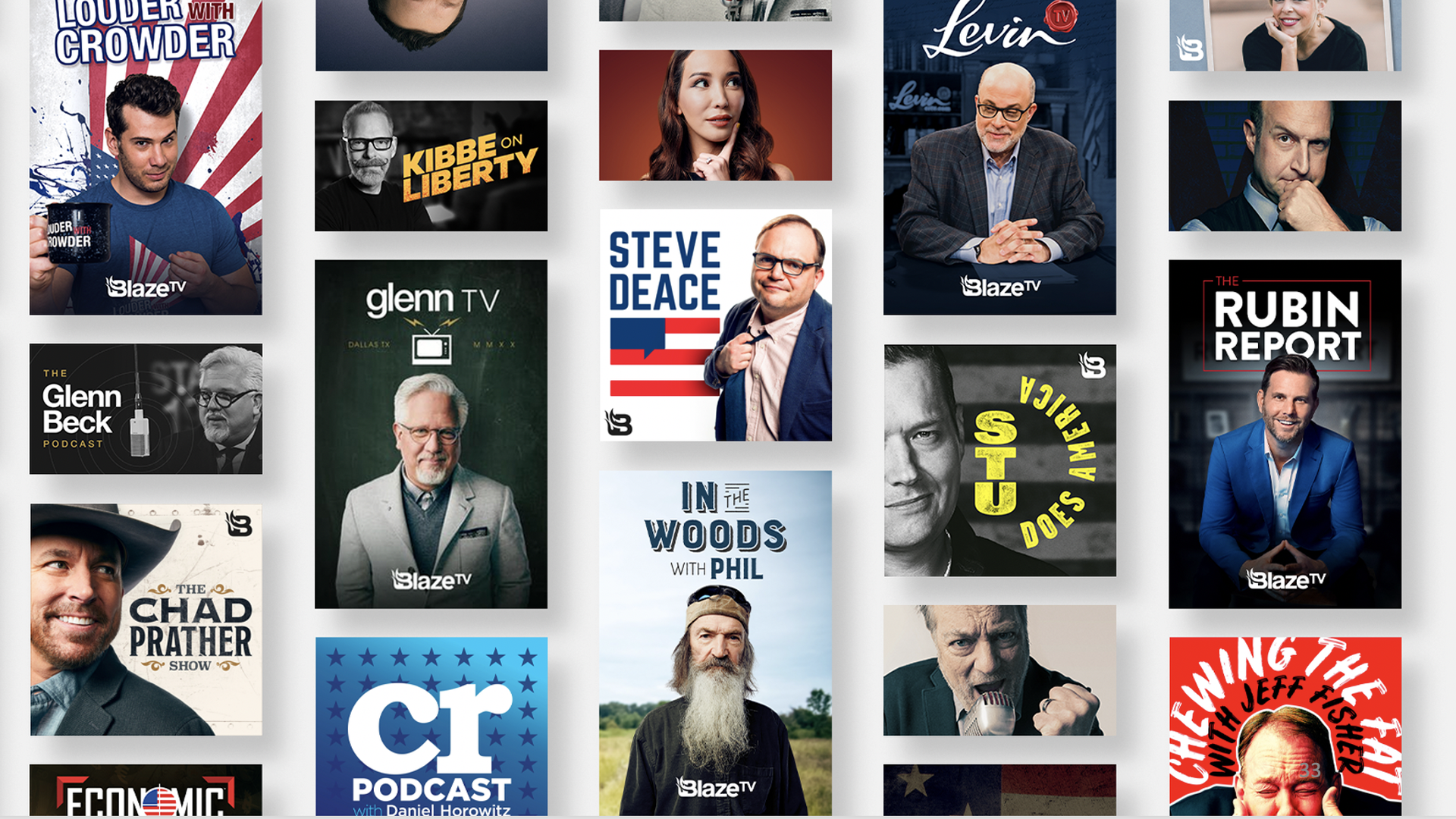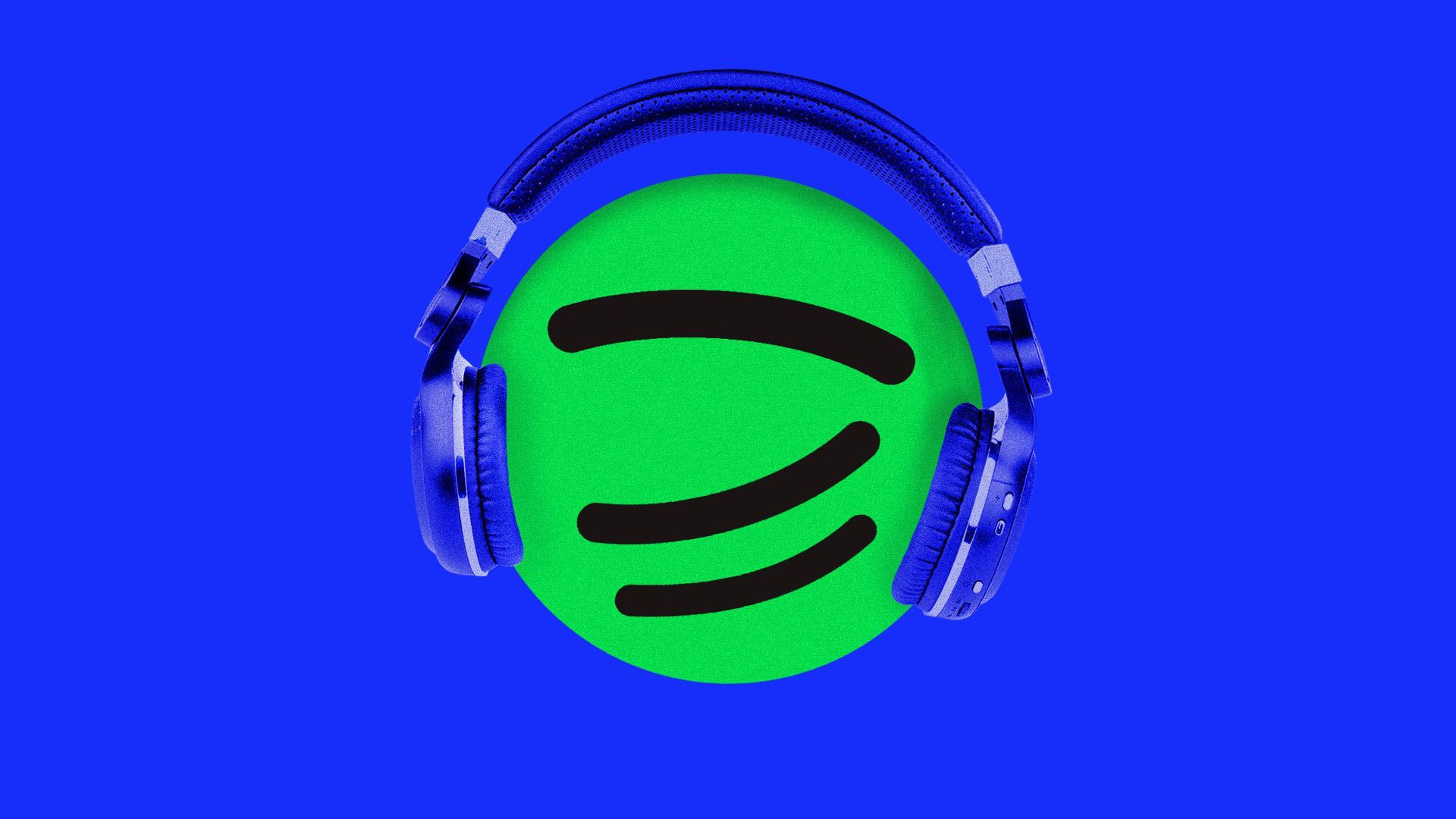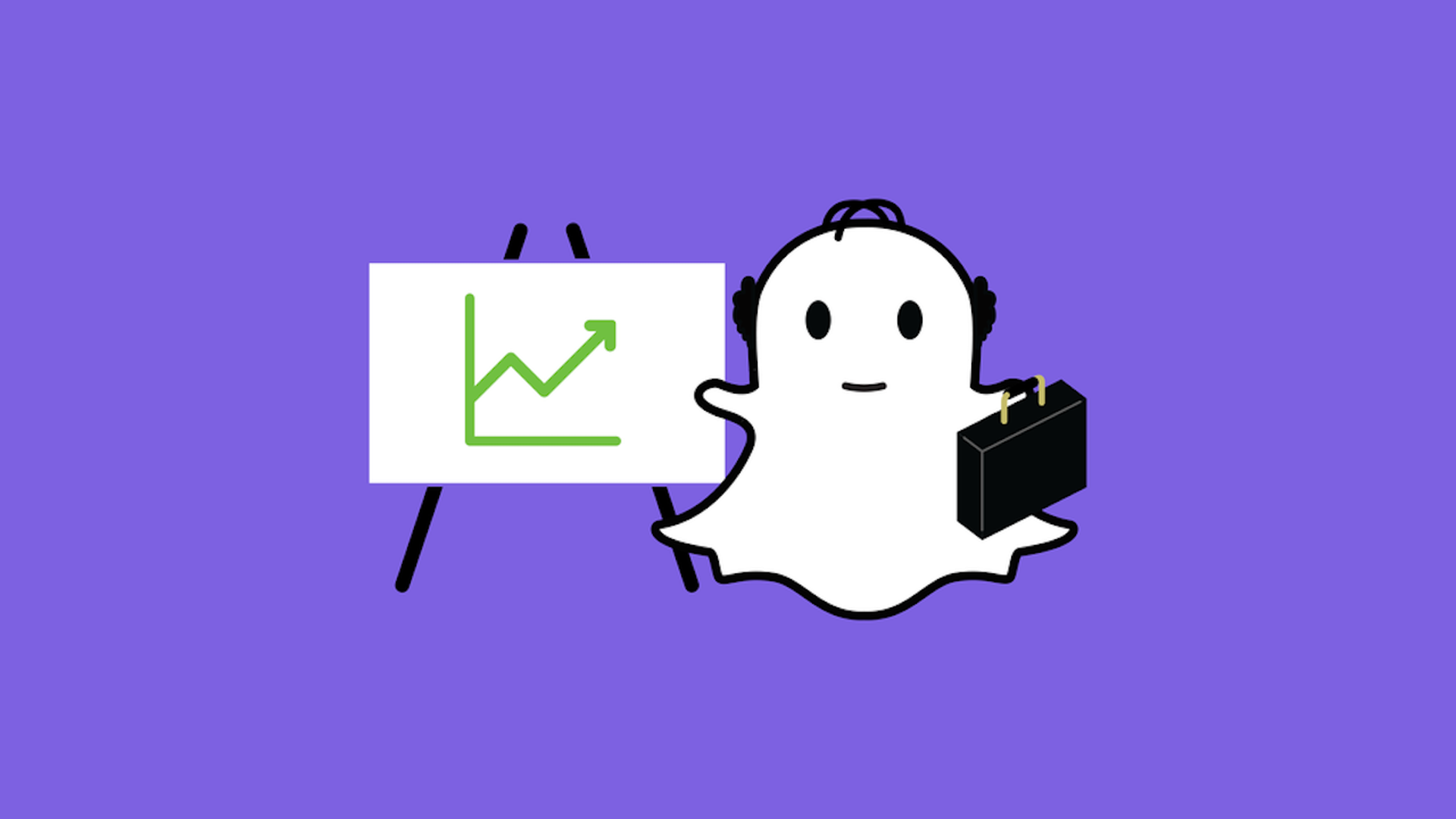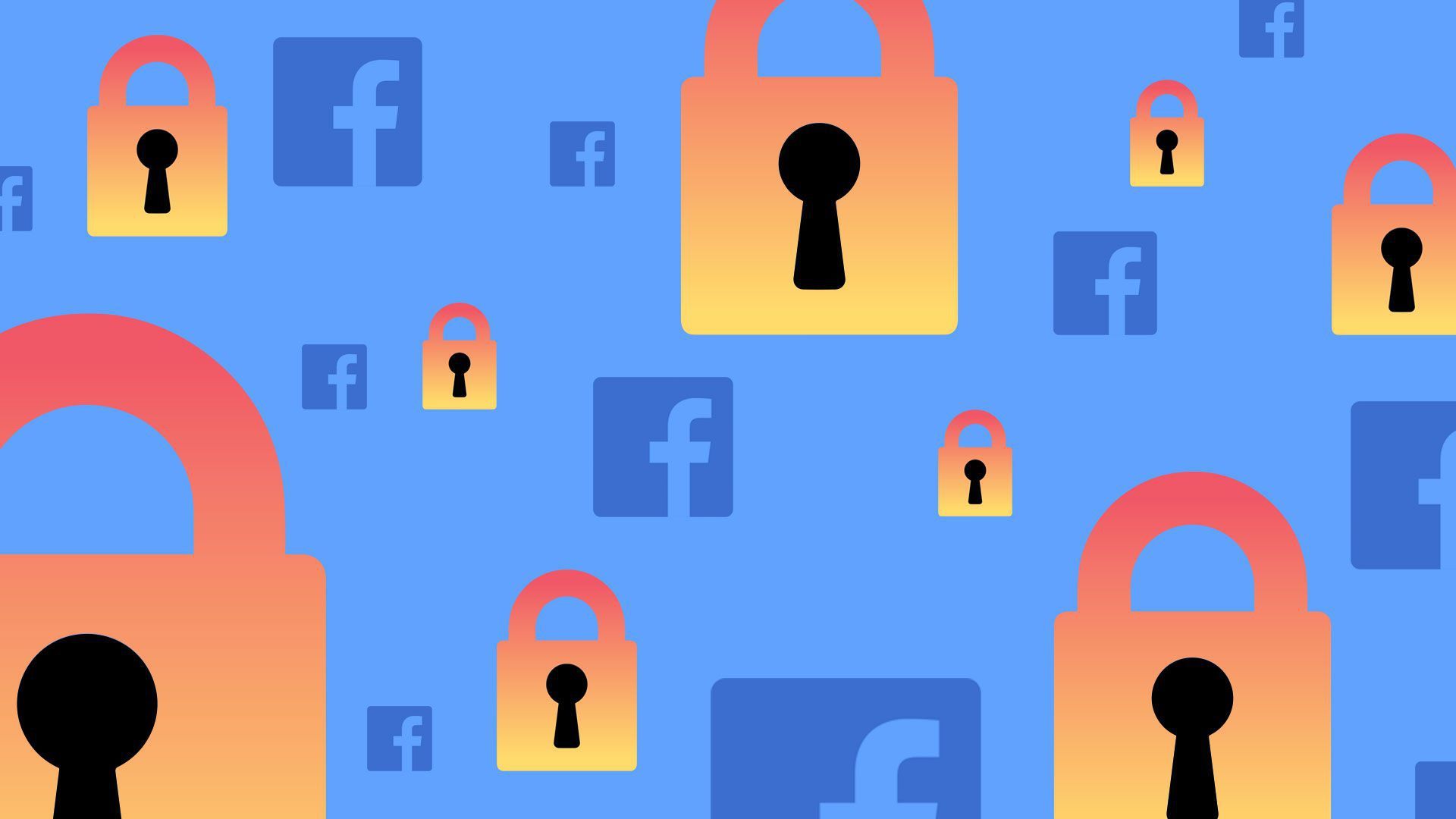| | | | | | | Presented By Giide | | | | Axios Media Trends | | By Sara Fischer ·Dec 22, 2020 | | Today's Media Trends is 1,432 words, a 6-minute read. Sign up here. - This is the last Media Trends of 2020. I'll be back in your inboxes on January 11.
⚡️ Situational awareness: - Group Nine Media officially filed with the SEC for its first SPAC, seeking to raise $200 million to acquire and take public another media company.
- MGM Holdings, the movie studio behind James Bond, is reportedly exploring a sale at a $5.5 billion valuation.
| | | | | | 1 big thing: 📺 The real competitor to Trump TV |  | | | Blazemedia.com | | | | The conservative media company that owns BlazeTV has quietly been building a massive subscriber base, a direct threat to any digital TV effort being floated by President Trump and his allies, sources tell Axios. - By the numbers: Blaze Media — which was created as a result of the 2018 merger between The Blaze, a pay-TV network founded by Glenn Beck, and CRTV, an online subscription network that owns Conservative Review — now has 450,000 paid subscribers to BlazeTV, paying on average $102 a year.
The big picture: Blaze Media's business model offers a blueprint for how to build a successful partisan media network with little overhead, in a post-cable world. - BlazeTV, the OTT channel, is the cornerstone of the business. But the company also runs a sizable podcast platform, the Blaze Podcast Network, which caters to personalities that already have massive radio and social media followings, like Mark Levin and Glenn Beck.
- The company also has a 24/7 digital TV channel called Live, which is available to BlazeTV subscribers and is also available on ViacomCBS' free streaming channel Pluto TV.. Its digital linear radio stream, Blaze Radio, is available on its website and on the iHeartRadio app.
- The podcast network, along with Blaze Live, Blaze Radio and its website, serve as a marketing funnel to its lucrative BlazeTV product, while also bringing in additional ad revenue.
Prior to the merger, The Blaze had a traditional TV channel. It yanked the channel off the air to focus on building a digital empire that it thought would have more staying power and give the company greater control of its distribution. - "It wasn't without risk because we were walking away from a substantial amount of revenue, but we wanted to focus on better positioning ourselves for where we see things going within the next 3 to 5 years," emails Blaze Media CEO Tyler Cardon. "It was the right call, even in the short-term. Ad revenue is up 70% year-over-year."
Between the lines: Unlike Fox News or even cable upstarts like Newsmax and One America News Network (OANN), Blaze Media is truly an identity brand. - Its business has been built around outspoken conservative personalities that have already proved successful in building massive, loyal audiences, like Levin and Beck, as well as Dave Rubin, and Phil and Jase Robertson from "Duck Dynasty."
- The company, headquartered in Texas, bills itself as a commentary and entertainment network that caters to everyday people, not a traditional news company headquartered in a big coastal city.
The bottom line: For large swaths of the population, credibility in 2020 is about authenticity instead of objectivity. The Blaze's offering, designed to feel authentic instead of authoritative, leans into what people are willing to pay for. |     | | | | | | 2. "Unreliable" sources got more traction in 2020 |  Data: NewsGuard; Chart: Sara Wise/Axios Unreliable news websites significantly increased their share of engagement among the top performing news sources on social media this year, according to a new analysis from NewsGuard provided to Axios. Why it matters: Quality filters from Big Tech platforms didn't stop inflammatory headlines from gaining lots of tracking, especially from fringe-right sources. By the numbers: In 2020, 17% of engagement among the top 100 news sources on social media came from sources that NewsGuard deems generally unreliable, compared to about 8% in 2019. - NewsGuard found that its top rated "unreliable" site, The Daily Wire, saw 2.5 times as many interactions in 2020 as 2019. Dan Bongino's site bongino.com increased engagement by more than 1700% this year.
Go deeper. |     | | | | | | 3. 🚨Right-wing shows run clarifications after legal threats | | Shows on Newsmax, Fox Business and Fox News have begun airing corrections and clarifications to baseless allegations of election fraud involving Smartmatic and Dominion following legal threats by the two voting machine companies. - Why it matters: Defamation lawsuits could prove to be very costly, especially for fledgling networks like Newsmax and OAN that are trying to lure investors to take on Fox News.
|     | | | | | | A message from Giide | | The key to capturing people's attention with your content | | |  | | | | Businesses are struggling to reach their customers and employees who already have too much to read and watch. Imagine being able to deliver an audio message embedded with links to video, articles, surveys and more. Find out why so many companies around the world are turning to Giide. | | | | | | 4. Spotify's plan to dominate audio ads |  | | | Illustration: Sarah Grillo/Axios | | | | Having watched how companies like Facebook and Google built up the digital ad ecosystem, Spotify's Jay Richman, who heads the company's ads business and platform, says the streamer is determined not to focus on scale over quality. - "The creator community has been left out of the value creation," Richman said in an interview with Axios. "It's really important that given where we're at, with the space being so nascent, that we have an opportunity to build it in a healthy, sustainable way."
Heading into 2021, the company is looking to build a more interactive ad platform within its app, which it hopes will also improve podcast measurement. - It's testing redeemable coupon codes, so that Spotify listeners can redeem discount codes read by hosts in podcast ads within the Spotify app. This will also help the company measure ad effectiveness in a new way.
Full interview. |     | | | | | | 5. COVID relief gives aid to local news, theaters, live venues | | A provision authored by Democratic Sen. Maria Cantwell was included in the bipartisan COVID stimulus package passed last night, per a press statement. - Why it matters: The provision makes thousands of small local newspapers, radio, and TV broadcasters — and hundreds of public broadcasting stations — newly eligible for emergency federal support under the Paycheck Protection Program.
The big picture: The relief bill also includes a $15 billion lifeline of grants to independent movie theaters, live entertainment venues, live theaters, and museums. |     | | | | | | 6. Snap's best year |  | | | Illustration: Axios Visuals | | | | Snapchat had its best year in 2020, adding 31 million daily active users and increasing its stock price from roughly $16 in January to more than $52 today. - It also avoided most of the drama and regulatory scrutiny that its competitors faced around things like content moderation, bias, and privacy.
The big picture: The pandemic accelerated underlying trends favorable to Snap. - The app, which is designed to connect users with their closest friends, saw boosts in engagement while many teens and college students were forced to stay home from school.
- With stores closed and e-commerce surging, Snapchat's advertising efforts around augmented reality and e-commerce proved fruitful.
- Quarterly revenue last quarter was up 52% year-over-year to $679 million.
Meanwhile, other tech rivals like Facebook and Google were slapped with several new regulatory investigations. Axios' tech policy team ranks the 5 new lawsuits: Facebook stands to lose the most, but Google is more likely to lose. |     | | | | | | 7. Facebook, Apple privacy fight gets messy |  Data: Apple; Table: Andrew Witherspoon/Axios Apple last week posted new privacy "nutrition labels" on apps in the iOS App Store, giving users a look at how different apps stack up according to Apple's standards. The big picture: The labels show that generally, social media apps collect more kinds of data than messaging apps. - Messaging apps owned by Facebook, like Whatsapp and Messenger, appear to collect more data than some of their peers, per Apple's labeling standards.
- Signal, which is run by a privacy-focused non-profit, collects virtually no data from its users.
Be smart: The labels are meant to serve as an easy-to-view summary of how apps collect user data for users to review before they install a new app. The information, however, is self-reported by the app developers. - Apple does post privacy labels for its own apps, like Messages, but they do not appear in the App Store, since these apps are pre-installed. A user has to find the labels on the web separately.
- Yes, but: Some developers, like Facebook's messaging service WhatsApp, worry that the summaries are too broad and could spook users into thinking they collect more data than they do.
The big picture: The labels are one part of a larger battle between Apple and Facebook that erupted last week over Apple's efforts to tighten privacy rules, which Facebook argues could harm small businesses who benefit from ad tracking. - Facebook launched a two-day newspaper ad blitz last week over the issue. At the same time, Facebook said it is backing developers in a lawsuit against Apple's app store policies.
What to watch: Google and Facebook reportedly agreed to team up against possible antitrust action. |     | | | | | | 8. Facebook beefing up account security in 2021 |  | | | Illustration: Lazaro Gamio/Axios | | | | Facebook next year plans to roll out mobile support for security tokens for users who want to take extra measures protect their accounts, the company's head of security policy Nathaniel Gleicher tells me. - It will also expand its Facebook Protect security program to more types of accounts next year, beginning with vulnerable users like journalists, human rights defenders, celebrities and government officials — and in countries with prominent upcoming elections.
Go deeper. |     | | | | | | 9. 1 fun thing: Best corrections of 2020 | - December 16, The Associated Press: "In a story on December 15, 2020, about the Mexican and Brazilian presidents congratulating U.S. President-elect Joe Biden, The Associated Press erroneously reported that Biden's first name is Jose. His name is Joe."
- November 10, The New York Times: "An earlier version of this article misstated the activity on QAnon message boards on 8kun. One of the message boards about QAnon had fewer new posts than the board for adult-diaper fetishists, not the most active QAnon board."
- October 30, The New York Times: "An earlier version of this article misstated who painted the cover artwork for Salem's "Fires in Heaven." It is Nicole Besack, not John Holland. It also incorrectly described what Jack Donoghue was doing during the interview. He was not vaping."
- April 26, The Baltimore Sun: "The images in the 'Spot the difference' feature in the Sunday, April 26, editions were mistakenly the same image and not in fact different. The Baltimore Sun regrets the error."
- April 24, The New York Times: "We've deleted an earlier tweet and updated a sentence in our article that implied that only "some experts" view the ingestion of household disinfectants as dangerous. To be clear, there is no debate on the danger."
|     | | | | | | A message from Giide | | Interactive audio built for business communications and learning | | |  | | | To communicate more effectively, companies are turning to Giide, a software platform that lets businesses create interactive audio content. - Giide is used globally for communications, training, remote meetings, onboarding, and even CEO updates.
The result: Deeper engagement with employees and customers. | | | | | | Axios thanks our partners for supporting our newsletters.
Sponsorship has no influence on editorial content. Axios, 3100 Clarendon Blvd, Suite 1300, Arlington VA 22201 | | | You received this email because you signed up for newsletters from Axios.
Change your preferences or unsubscribe here. | | | Was this email forwarded to you?
Sign up now to get Axios in your inbox. | | | | Follow Axios on social media:    | | | | | |









No comments:
Post a Comment